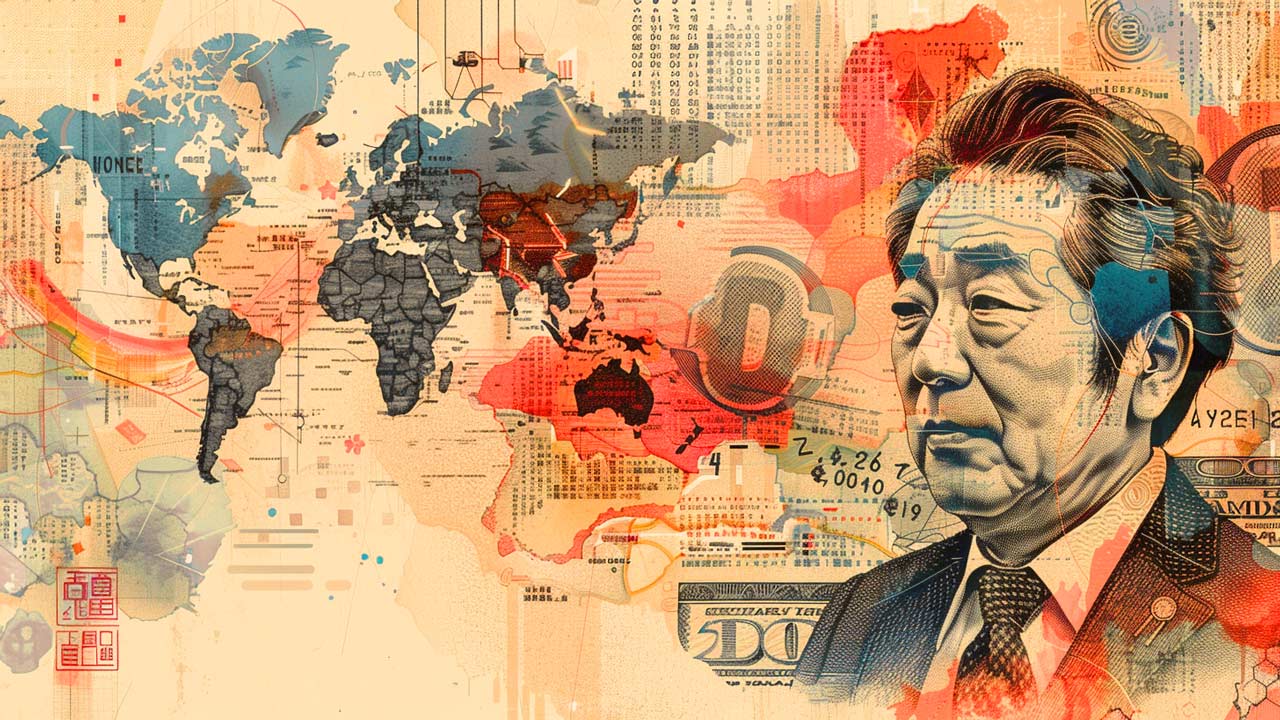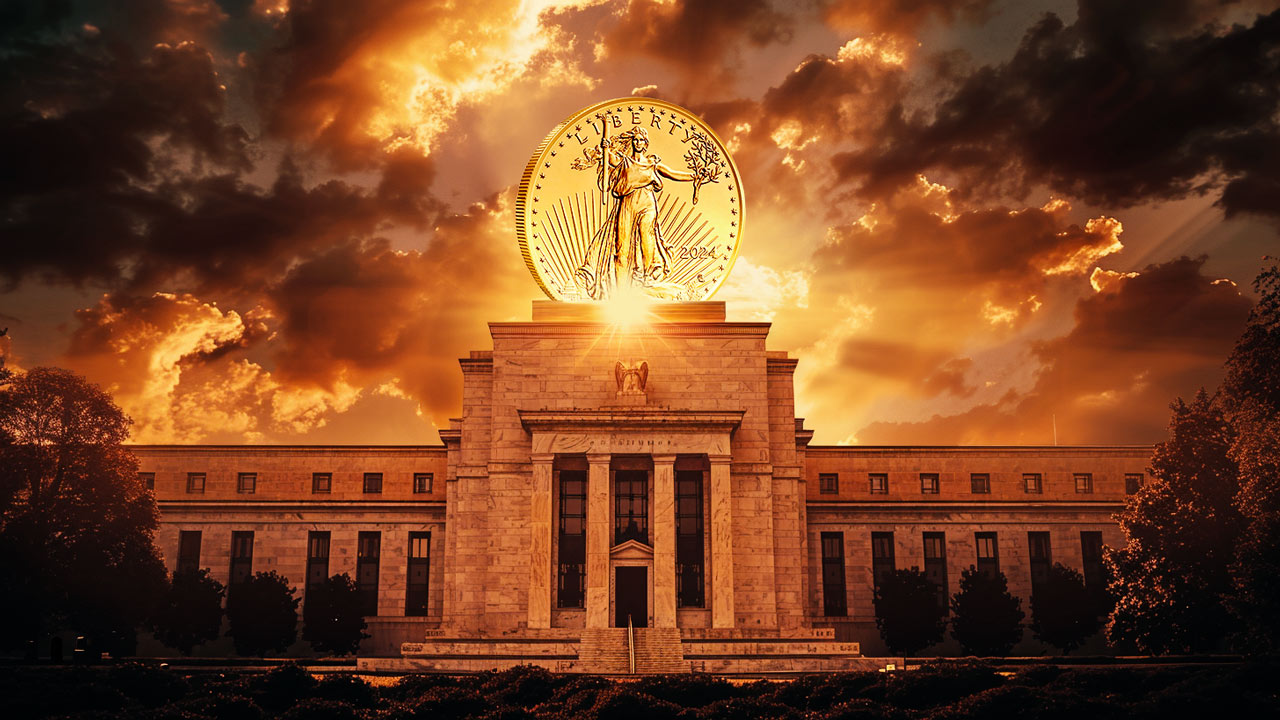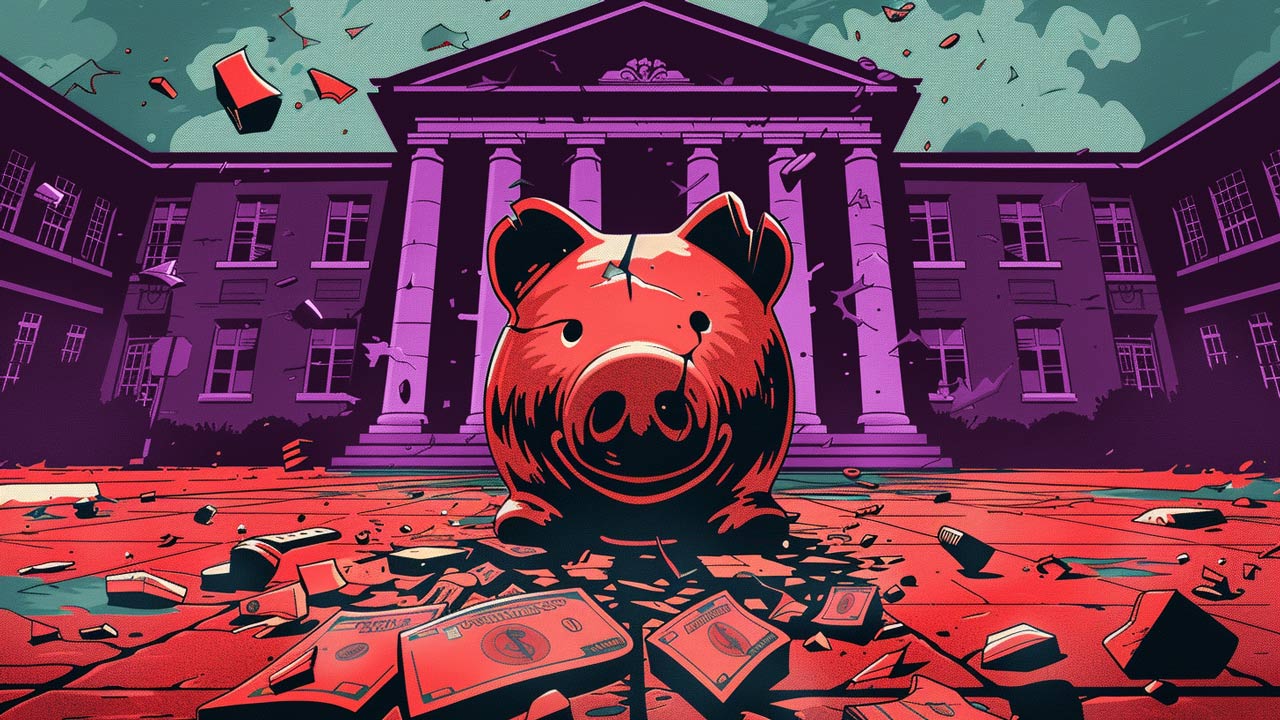Inflation: A Semantic Change Worth Noting
 This article was submitted by Joel Bauman, SchiffGold Precious Metals Specialist. Any views expressed are his own and do not necessarily reflect the views of Peter Schiff or SchiffGold.
This article was submitted by Joel Bauman, SchiffGold Precious Metals Specialist. Any views expressed are his own and do not necessarily reflect the views of Peter Schiff or SchiffGold.
We hear on the news all the time, “The Fed is fighting deflation,” or, “Central banks are responsible for maintaining a healthy 2% inflation rate.” But what exactly is the Fed fighting? What exactly is inflation and deflation?
The concepts of inflation and deflation have been completely misconceived by the public and economists alike. Back in grad school I was in the middle of class, and I realized the definition of inflation used by my professor was different than what I had originally learned. In fact, the definition given depended on whom I asked, or which book I read.
One can look up the definitions in any Webster’s dictionary published from 1864 through 2003 and find inflation defined as: “Undue expansion or increase, from over-issue; — said of currency.” This definition is seen in older versions of the American College Dictionary describing inflation as “Undue expansion or increase of the currency of a country, especially by the issuing of paper money not redeemable in specie.”
When reading modern definitions of inflation the focus is on the consequences of inflation rather than it’s true meaning, “a continuing rise in the general price level,” as defined by the post 2003 version of Webster’s dictionary, or “A substantial rise of prices caused by an undue expansion in paper money or bank credit,” which is a more recent definition by the American College Dictionary.
These modern definitions identify the symptoms without diagnosing or acknowledging the condition. This is a subtle but inaccurate change in the terminology. A doctor wouldn’t define a disease by simply listing off the symptoms of the illness but rather the condition itself.
Economist Ludwig Von Mises identified the problem inherent in this change of meaning in his book Human Action:
The semantic revolution, which is one of the characteristic features of our day, has also changed the traditional connotation of the terms inflation and deflation. What many people today call inflation or deflation is no longer the great increase or decrease in the supply of money, but its inexorable consequences, the general tendency toward a rise or a fall in commodity prices and wage rates. This innovation is by no means harmless. It plays an important role in fomenting the popular tendencies toward inflationism.”
Put simply by Ludwig von Mises, inflation is an increase in the supply of money, and deflation is a decrease in the supply of money.
It’s necessary for the public to understand the correct definition of inflation so it doesn’t get swept away in the ambiguity of phrases like “fighting inflation” which simply translates into “fighting symptoms” under the modern definition of inflation.
Some even ask, is expanding the money supply really so terrible? Isn’t an increase in the supply of other goods economically productive? Yes, expanding the supply of consumable goods and services is beneficial because an economy enjoys the benefits of consuming those goods at a lower cost of personal wealth i.e. lower prices. In fact, the larger the expansion in an economy’s capacity to supply goods and services, the larger the growth in a nation’s wealth and this expansion of supply confers a social benefit.
Most, individuals would agree the existence of money is beneficial to society, but what is the social benefit of increasing the quantity of money? Money isn’t consumed or used in production. Money’s only purpose is to help facilitate the transfer of goods and services, and it creates a metric of accountability. Economist Murray Rothbard explains this in his book, The Case Against the Fed.
An increase in the supply of money cannot relieve the natural scarcity of consumer or capital goods; all it does is to make the dollar or the franc cheaper, that is, lower its purchasing power in terms of all other goods and services. Once a good has been established as money on the market, then, it exerts its full power as a mechanism of exchange or an instrument of calculation.”
If everyone in the world used exclusively gold as money, and if everyone’s supply of gold doubled simultaneously, ceteris paribus, nothing in the world would change besides price (This example also assumes gold is used only as money and not as a consumable commercial good.) There would be no gain in wealth and the price of every single good and service would double accordingly (similar to a 2:1 stock split).
Why then are there so many advocates for inflation? In reality the process of inflation is different than the hypothetical example given above where everyone’s personal money supply increases equally. In the real world, the process of inflation redistributes wealth and creates net winners at the expense of many losers.
In my next post I’ll write a little more on the process of inflation, and about which market participants benefit from inflation and which participants experience a loss.
Get Peter Schiff’s most important Gold headlines once per week – click here – for a free subscription to his exclusive weekly email updates.
Interested in learning more about physical gold and silver?
Call 1-888-GOLD-160 and speak with a Precious Metals Specialist today!




 With the AI boom and green energy push fueling fresh copper demand, and with copper mines aging and not enough projects to match demand with supply, the forecasted copper shortage has finally arrived in earnest. Coupled with persistently high inflation in the US, EU, and elsewhere, I predict the industrial metal will surpass its 2022 top to reach a […]
With the AI boom and green energy push fueling fresh copper demand, and with copper mines aging and not enough projects to match demand with supply, the forecasted copper shortage has finally arrived in earnest. Coupled with persistently high inflation in the US, EU, and elsewhere, I predict the industrial metal will surpass its 2022 top to reach a […] America’s trust in its institutions has rapidly eroded over the past 20 years. We have a lower level of trust in our judicial system and elections than most European countries. Some of this is natural, as Americans are uniquely individualistic, but much of it arises from repeated government failures.
America’s trust in its institutions has rapidly eroded over the past 20 years. We have a lower level of trust in our judicial system and elections than most European countries. Some of this is natural, as Americans are uniquely individualistic, but much of it arises from repeated government failures. Decades of negative interest rate policy in Japan have ended. That could mean the end of the $20 trillion “yen carry trade,” once one of the most popular trades on foreign exchange markets, and a chain reaction in the global economy. The yen carry trade is when investors borrow yen to buy assets denominated in […]
Decades of negative interest rate policy in Japan have ended. That could mean the end of the $20 trillion “yen carry trade,” once one of the most popular trades on foreign exchange markets, and a chain reaction in the global economy. The yen carry trade is when investors borrow yen to buy assets denominated in […] With a hot CPI report casting a shadow of doubt on the likelihood of a June interest rate cut, all eyes are on the Fed. But they’ve caught themselves in a “damned if they do, damned if they don’t” moment for the economy — and the news for gold is good regardless.
With a hot CPI report casting a shadow of doubt on the likelihood of a June interest rate cut, all eyes are on the Fed. But they’ve caught themselves in a “damned if they do, damned if they don’t” moment for the economy — and the news for gold is good regardless.  It’s no secret that the American public is wildly ignorant of many issues that are central to the success of our nation. Just a generation ago it would have been unthinkable that less than half of the American population could recognize all three branches of government. America is in most cases far less educated about its government […]
It’s no secret that the American public is wildly ignorant of many issues that are central to the success of our nation. Just a generation ago it would have been unthinkable that less than half of the American population could recognize all three branches of government. America is in most cases far less educated about its government […]
Hi Joel,
This article is very much true to me, I had the same experience understanding Inflation and what causes it. In fact, a week ago I wrote to Peter about the same in my email.
Its not just the economy but even education is deteriorating.
A much needed basic understanding. Thank you. Inflation is also know as the cruelest tax of all since the poorest are at the end of the money velocity cycle. The full weight of the shrunken purchasing value is on them as evidenced by the rise in prices. Not understanding this many will then cry for government wage and price controls from the same people who helped cause the problem in the first place. Higher prices are the result of inflation not the cause of inflation.